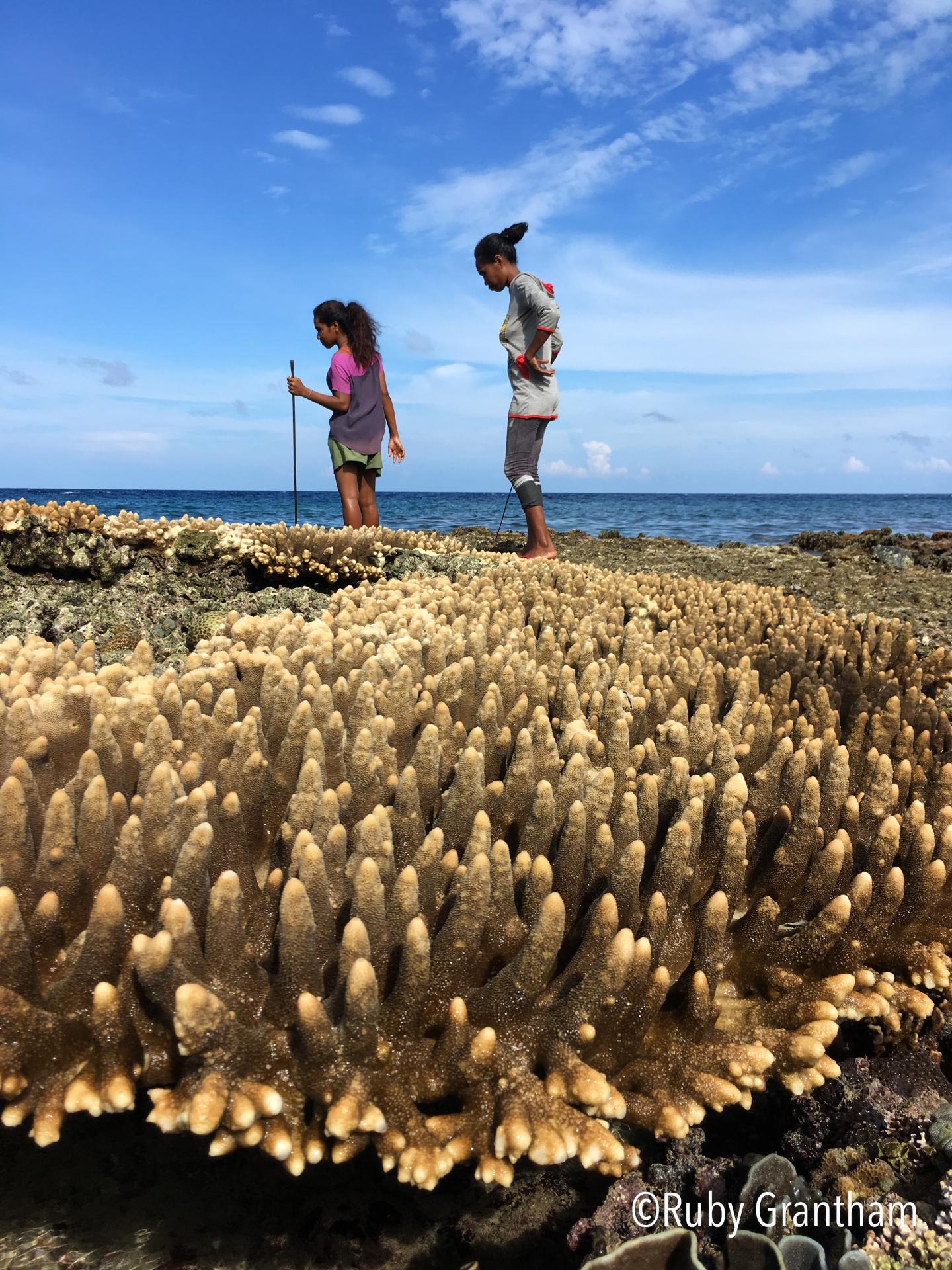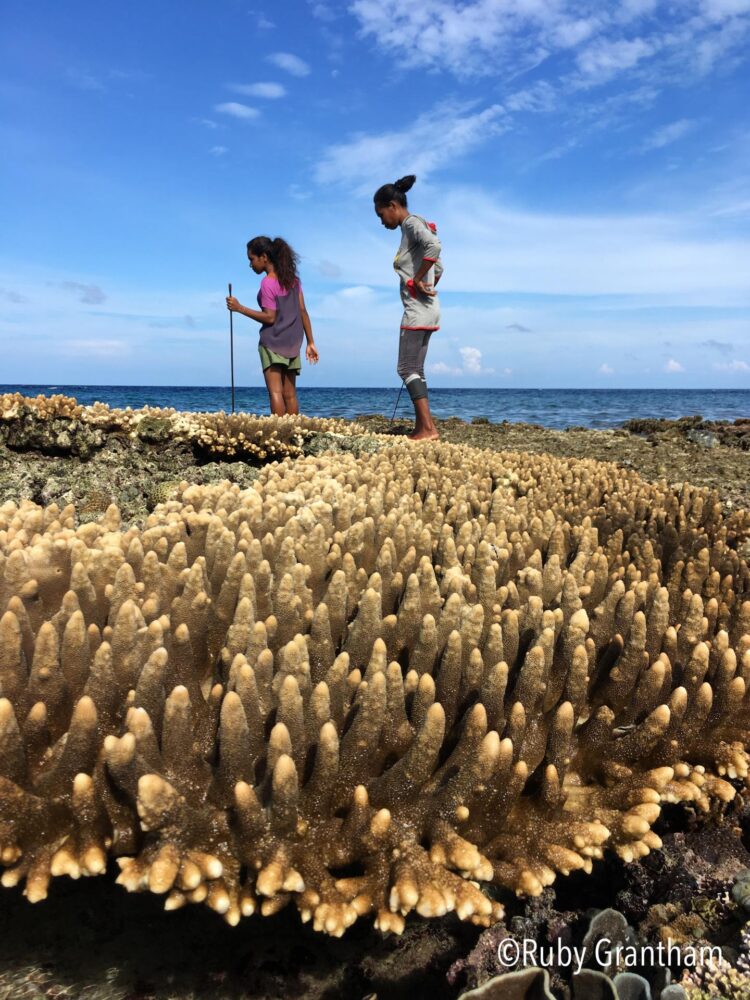
Credit: Ruby Grantham / ARC Centre of Excellence for Coral Reef Studies.
Scientists say stable seafood consumption amongst the world’s poorer coastal communities is linked to how local habitat characteristics influence fishing at different times of the year.
In the coastal communities of low-income countries, the seafood people catch themselves is often a main food source. In a new study, scientists focused on an often-overlooked type of fishing called gleaning: collecting molluscs, crabs, octopus and reef fish by hand close to shore.
“We surveyed 131 households in eight coastal communities on a small island off Timor-Leste,” said study lead author Ruby Grantham from the ARC Centre of Excellence for Coral Reef Studies.
Grantham said even though gleaning is important for food security in rough weather–when other types of fishing often aren’t possible–some households don’t do it.
“It’s not just a case of people fishing when they need to. Weather and coastal conditions make fishing activities, including gleaning, dangerous, unsuccessful or even impossible in some places at certain times of the year,” Grantham said.
She said the findings illustrate the ways people interact with, and benefit from, coastal ecosystems. And how this varies between communities and seasons.
The study found the ability of households to glean in rough weather was influenced by the total area and type of shallow habitat close to the community.
“This highlights why we need context-specific understanding of dynamic coastal livelihoods and small-scale fisheries in particular,” Grantham said.
“Even amongst these eight communities on the same small island we found distinct differences in how and when gleaning contributes to household fishing activities and as a source of subsistence seafood.”
Co-author Dr David Mills, Research Leader for the WorldFish Country Program in Timor-Leste, said the research is important for the future management of coastal fisheries.
“In Timor-Leste, low-income households have few opportunities to access the high-quality nutrition available from seafood,” Dr Mills said.
“We know that gleaning fisheries are really important for food security at particular times of the year,” he said.
“And this detailed research will help us develop management approaches that keep fisheries sustainable while also ensuring seafood remains available to those who need it the most, when they need it the most.”
Climate change is altering the world and its environments rapidly. People depend on their interactions with nature for many aspects of wellbeing. Understanding these interactions is critical for diagnosing vulnerabilities and building resilience, especially amongst coastal communities who depend directly on healthy oceans for food.
“The success of coastal livelihood strategies depends on a range of influences that are now, at best, poorly-understood,” Grantham said.
“We wanted to explore how people interact with and benefit from coastal environments through time.”
Grantham said a better understanding of the existing relationships between people and nature, as well as how these influence interactions between societies and local ecosystems, is crucial to legitimate environmental policy and management to ensure sustainable futures.
“We need to further consider the factors influencing how feasible and how desirable social-ecological interactions, like fishing, are across different seasons,” she said.
“These insights of the fine scale dynamics in how people interact with coastal ecosystems through activities such as gleaning can help strengthen our understanding in research, decision-making and management in coastal areas exposed to environmental change.”
###
PAPER
Grantham R, Álvarez?Romero J, Mills D, Rojas C, Cumming G. (2021). ‘Spatiotemporal determinants of seasonal gleaning’. People and Nature. DOI: 10.1002/pan3.10179
CONTACT
Ruby Grantham (Townsville, Australia)
E: [email protected]
David Mills (Townsville, Australia)
P: +61 (0) 415 067 551
E: [email protected]
FURTHER INFORMATION
Melissa Lyne / Coral CoE (Sydney, Australia)
P: +61 (0)415 514 328
E: [email protected]
Media Contact
Melissa Lyne
[email protected]
Original Source
https:/
Related Journal Article
http://dx.





